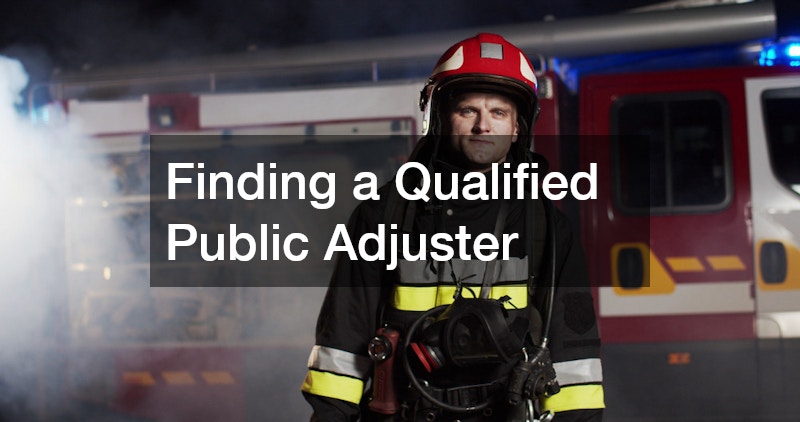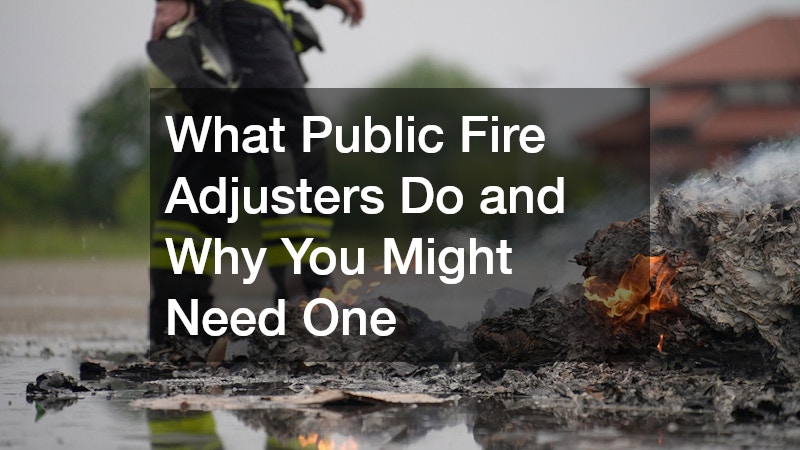Assessment of Fire Damage
The first step in managing a fire insurance claim is the comprehensive assessment of damage performed by fire public adjusters. They meticulously inspect the site, documenting visible and hidden damage, which is a critical component of a successful claim. This thorough assessment allows for the creation of a detailed report that supports the policyholder’s claim objectively.
Public adjusters are trained to identify all types of fire damage, including structural, smoke, and water damage caused by firefighting efforts. Their expertise ensures that even subtler damages that are not immediately apparent are not overlooked.
By capturing the full scope of damage, they help ensure that claim settlements are adequate to cover restoration and repairs.
The documentation process involves photography, video, and written records, creating a comprehensive archive for presentation to the insurance company. Public adjusters use their experience to anticipate questions and challenges from the insurer, ensuring that every aspect of the claim is well-supported. This approach not only strengthens the claim but also shortens the processing time.
Maximizing Your Insurance Payout
Public adjusters employ various strategies to maximize insurance payouts. They ensure that all policy benefits are utilized, potentially identifying supplementary coverages that policyholders are unaware they possess. This comprehensive approach increases the likelihood of achieving a settlement that meets the policyholder’s needs.
By using detailed evidence and expert opinions, fire public adjusters build a strong case for higher payouts. Collaborating with construction experts or estimators can provide credible support for damage estimates. This professional reinforcement often leads to better settlement offers than those initially presented by insurance companies.
Public adjusters remain involved throughout the process, ready to address any challenges from the insurer. Their ongoing advocacy is critical in ensuring that no elements of the claim are dismissed or undervalued. This dedication to maximizing payouts means that policyholders can fully recover and rebuild without sacrificing quality or incurring additional unexpected costs.
Signs You Might Need a Public Adjuster
There are several scenarios in which hiring a fire public adjuster is highly beneficial. If the insurance claim involves significant complexity or substantial financial stakes, a public adjuster’s expertise can be invaluable. Similarly, if initial settlement offers are unsatisfactory, they can re-evaluate and advocate for better compensation.
Policyholders who are unfamiliar with the claim process or feel overwhelmed by the paperwork should consider hiring a public adjuster. Public adjusters navigate the intricacies of the process, offering peace of mind and skillful management of claims. Their involvement can make a substantial difference in both ease of process and final settlement value.
In cases where there is a dispute over the extent of coverage or the interpretation of policy terms, a fire public adjuster can offer a reputable voice. They bring clarity to situations where misunderstanding or miscommunication may otherwise compromise the claims outcome. Their intervention can be pivotal in resolving disputes amicably and favorably for the policyholder.
Cost Considerations
Public adjusters typically work on a contingency basis, earning a percentage of the insurance settlement. This arrangement aligns their interests directly with those of the policyholder, as there is no fee unless a successful claim settlement is achieved. This model offers reassurance to policyholders, as public adjusters are motivated to secure the highest possible settlement.
The percentage charged by public adjusters usually ranges between 5% and 15%, depending on the claim’s complexity and potential payout. Such fees should be carefully considered in the context of the potential increase in settlement value that a public adjuster might achieve. For many, the cost of hiring a public adjuster is offset by the significant benefits of higher compensation and claim management efficiency.
It’s important for policyholders to discuss these fees and terms clearly when engaging an adjuster. Conversely, the expense must be balanced against the expected gains from a well-handled claim. Clarity on this front helps ensure that the decision to hire a public adjuster is both informed and rational, reflecting the policyholder’s best interests.
Finding a Qualified Public Adjuster
When searching for a fire public adjuster, it’s crucial to look for a qualified and experienced professional. Verify their licensing status and membership in reputable industry associations, such as the National Association of Public Insurance Adjusters (NAPIA). Membership in such organizations often indicates adherence to ethical standards and ongoing professional development.
Experience is a key factor in selecting a public adjuster since nuanced understanding is vital in complicated claims. Request references or testimonials from previous clients to gauge their effectiveness and reliability. Engaging a well-reviewed adjuster with a proven track record provides reassurance of their capability in handling claims competently and successfully.
Initial consultations with an adjuster can also provide insight into their communication style and approach. A good public adjuster should be transparent about their methods and confident in addressing any questions or concerns. Through these assessments, policyholders can make informed choices about who to trust with their important insurance claims.
To conclude, public fire adjusters are valuable allies in the complicated landscape of fire damage insurance claims. They play a critical role in ensuring that policyholders receive fair and complete settlements by expertly evaluating damage, negotiating with insurers, and maximizing payouts. When faced with the daunting task of filing a claim after a fire, policyholders should consider the services of a public adjuster to expedite recovery and restore their peace of mind.
.

